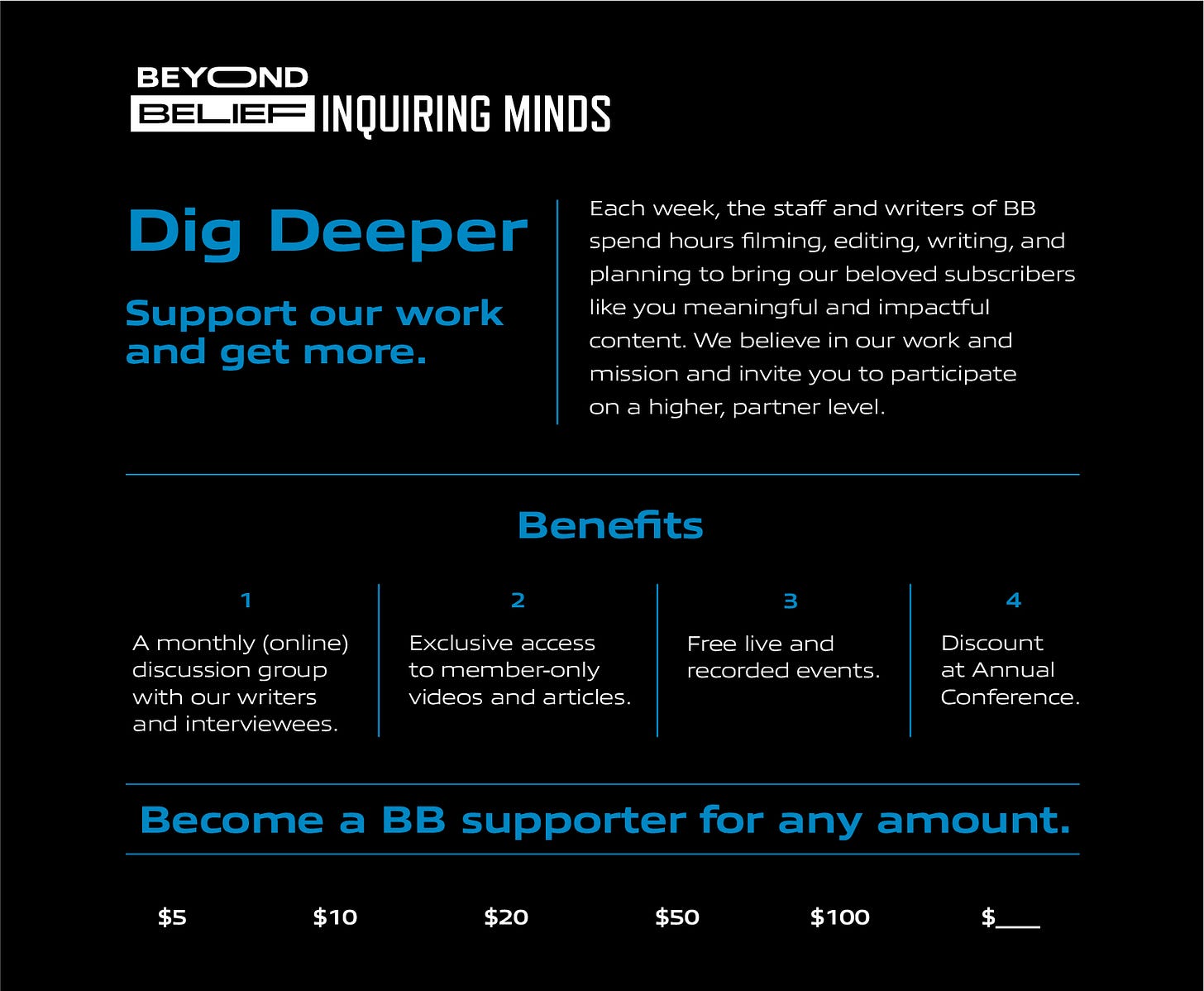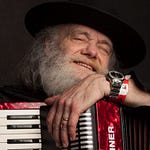Transcript
Hello all, and welcome to episode 45 of the Secret Chord Podcast. I'm excited today to bring you the music of the great Johnny Cash. So Johnny was born J.R. Cash, on February 26th, 1932. He was an American singer, songwriter, musician, actor, and TV personality. A lot of Johnny's music dealt with themes of sorrow, moral dilemma, and personal redemption, especially as his career went on. He was known for his deep, calm, bass-baritone voice, and the unusual sound of his Tennessee Three backing band, which was characterized by this train-like chugging guitar rhythm.
He had a rebelliousness coupled with an increasingly somber and humble demeanor. As his career went on. He was also known for his free prison concerts and a trademark all-black stage wardrobe, which earned him the nickname The Man in Black.
Johnny was born to poor cotton farmers in Kingsland, Arkansas. He rose to fame in the burgeoning rockabilly scene in Memphis after a four-year stint in the Air Force, (which not everybody knows about). He traditionally began his concerts by simply introducing himself, “Hello, I'm Johnny Cash,” which would be followed by Folsom Prison Blues, one of his signature songs. In addition to Folsom Prison Blues, his other main songs include I Walk The Line, Ring of Fire, Get Rhythm, and Man In Black.
He also recorded funny numbers like One Piece at a Time, and A Boy Named Sue, a duet with his future wife, June Carter called Jackson, which is a great song, and railroad songs such as, Hey Porter, Orange Blossom Special, and Wolk the Line. During the last stage of his career, he covered songs by contemporary rock artists of the time. His most notable covers were Hurt by Nine Inch Nails, Rusty Cage by Sound Garden, and Personal Jesus by Depeche Mode.
Johnny is one of the bestselling music artists of all time, having sold more than 90 million records worldwide. His genre-spanning music embraced country rock and roll, rockabilly, blues, folk, and gospel. This crossover appeal earned him the rare honor of being inducted into the Country Music, Rock and Roll, and Gospel Halls of Fame.
Now, Johnny was a complicated guy who viewed himself as deeply religious and deeply flawed. Maybe this complexity and self-identification as a “sinner” helped him to relate to the prison population. Johnny began performing concerts at prisons in the late 1950s. He played his first famous prison concert on January 1st, 1958 at San Quentin State Prison. These performances led to a pair of highly successful live albums, Johnny Cash at Folsom Prison, which was 1968, and Johnny Cash at San Quentin, 1969. Both live albums reached number one on Billboard Country Album Music, and the later crossed over to reach the top of the Billboard Pop Album charts.
In 1969, Johnny became an international hit when he eclipsed even The Beatles by selling 6.5 million records. Johnny agreed to perform two shows at Folsom Prison and was pretty particular about the songs in the setlist. On the eve of the concert, he met with his friend Rev Floyd Gressett, who ministered to state prisoners. Gressett gave Johnny a tape of Graystone Chapel, a song written and recorded by Folsom prisoner Glenn Shirley. After listening to the song, Johnny agreed to perform the song the next day. So let's hear a bit of that. This is Graystone Chapel by the great Johnny Cash:
I love that tune. This is a classic take on the true meaning of freedom—freedom of the mental and spiritual kind. There are people who are crushed by their physical circumstances, be it health or confinements, and there are those who find a space within themselves that allows them to transcend whatever physical circumstance they find themselves in. These people are enormously fortunate, as nothing in this world can truly hurt them.
Check out Viktor Frankl's Man's Search for Meaning for an incredible example of this capacity. Obviously, this is one of the main goals of the spiritual seeker, to identify with one's inner self so as to render the vicissitudes of the material world irrelevant. He says:
Now there's a Graystone Chapel here at Folsom. It has a touch of God's hand on every stone. It's a flower of light in a field of darkness, and it's giving me the strength to carry on.
The lyrics along with Shelly's life story inspired hope. He was arrested for armed robbery. He was serving a sentence of five years to life. His song described the Folsom Chapel as a refuge for some prisoners, and even in some of the toughest circumstances, they could see God's grace inside the walls of prison. Johnny was so captivated by Shirley's story and songwriting skills that he later made requests to public officials to grant him parole. Johnny even arranged for a small record company to make a recording of Shirley's own prison concert in 1971, which made it easier for officials to believe Johnny when he said that he would give him a job if paroled after Shirley's release.
He stayed true to his promise and invited him on tour, but tragically Shirley was erratic during the tour, even threatening a key member of Johnny's band. When Johnny heard about it, he fired Shirley, who returned to California and fell back into drug abuse. On May 11th, 1978, Shirley committed suicide. The news really took a toll on Johnny.
So what I love about this is that Johnny had taken a chance on Shirley when many people wouldn't have. He felt that grace and forgiveness were God's commands and didn't take them lightly. He was able to look at his own life recognizing that he had his own issues and was a recipient of grace and mercy from God too. So taking a chance on Shirley was not just an act of kindness, but a powerful reflection of his faith. But isn't it so tough when you think something great is coming and it all falls apart? Anyway, there are many biblical examples of this phenomenon of seemingly arriving at the promised land only to have the circumstances suddenly crash and burn.
For instance, after God told Abraham the patriarch to go to the promised land, as soon as he got there, there was a famine and he had to leave, which actually in the end led to improved circumstances for him. But for many, like Glenn Shirley, there's no obvious positive outcome, and that is a tough aspect of life, one that we all need to grapple with, and one that requires a grounded and abiding faith in the spiritual order and its goodness for solace.
Now, like many other musicians, Johnny Cash had drug issues. On May 11th, 1965, he was arrested in Starkville, Mississippi for trespassing late at night onto private property to pick flowers. He used this to write the song Starkville City Jail, which he discussed on his live album at San Quentin. While on tour that year, he was arrested on October 4th in El Paso, Texas by a narcotics squad. The officer suspected he was smuggling heroin from Mexico, but found instead 688 capsules of amphetamines and 475 of sedatives that he had hidden inside his guitar case.
Because the pills were prescription drugs rather than illegal narcotics, he received a suspended sentence. Johnny posted a $1,500 bond and then was released until his arraignment. Reflecting on his past in a 1997 interview, Johnny noted “I was taking the pills for a while and then the pills started taking me.” So like many musicians, the drugs brought him to a very low place, which required him to deeply reflect and change his life, which he did, and that gave birth to a higher level of spirituality for him.
There's an unconfirmed story that in 1967, Johnny had a spiritual epiphany in a particular cave. The story says that Johnny had attempted to commit suicide while under the heavy of drugs. He descended deep into the cave trying to lose himself and just die, but passed out on the floor utterly discouraged. He felt God's presence in his heart and struggled out of the cave despite exhaustion by following a faint light and a slight breeze to him. The incident represented his rebirth in his final days, despite moment-by-moment battles with diabetes, glaucoma, asthma, and a progressive debilitating case of autonomic nephropathy, which pretty much confined Johnny to a wheelchair during his waking hours, The man in black was anything but in a black mood. In fact, he was celebrating his life while he could.
“I'm thrilled to death with life,” Johnny told Larry, king, “life in the way God has given it to me. A golden platter, a golden platter of life laid out there for me. It's been beautiful.” Johnny died of complications from diabetes on September 12th, 2003 at the age of 71, less than four months after losing his beloved wife. This is his daughter, Roseanne, but she wrote a beautiful song about her father looking down on her from heaven, and it's called I Was Watching You. Let's give a listen to that. Now. This is, I was watching you by Roseanne Cash:
I think that's a beautiful song. Always loved that since I heard it several years ago.
And now, for our feature presentation today, this is a song called Wayfaring Stranger. It's a famous American folk and gospel song probably written in the 1800s, and it's about a soul on the journey through life. There were many versions of this song during and several years after the American Civil War. The lyrics were known as The Libby Prison Hymn named after a Confederate prison. So let's give a listen now to Wayfaring Stranger by the Great Johnny Cash:
Gorgeous. Johnny always loved a haunting tune, and this classic is made all the more so by his weathered voice, together with a fantastic violin solo from his daughter-in-law, Laura Cash, and with a surprising turn on the accordion by Sheryl Crow, new life was brought to this classic. He sang,
I'm just a poor wayfaring stranger traveling through this world below. There is no sickness, no toil nor danger in the bright land, to which I go.
Well, that's exactly right. We are all wayfaring strangers. As the Mishna says, “This world is like a corridor before the world to come prepare yourself in the lobby in order to enter the palace.” On a personal note, I have a new puppy, and I was told that he couldn't go out for walks beyond the backyard until he got his shots. So that's what we did, and that was his world, and he liked it well enough. The day after he got his shots, I took him outside to see the real world, and with his tail wagging excitingly, he discovered that there's just so much more than he thought, a seemingly infinite landscape to explore. Don't mistake the lobby for the palace. Enjoy it for what it is, but anticipate the expansive grandeur of what is yet to come.
Those are my thoughts on the great Johnny Cash, his music, and his spirituality. I hope you've enjoyed listening, and as always, we look forward to being together next time for more music and more ideas. Thank you for listening.














